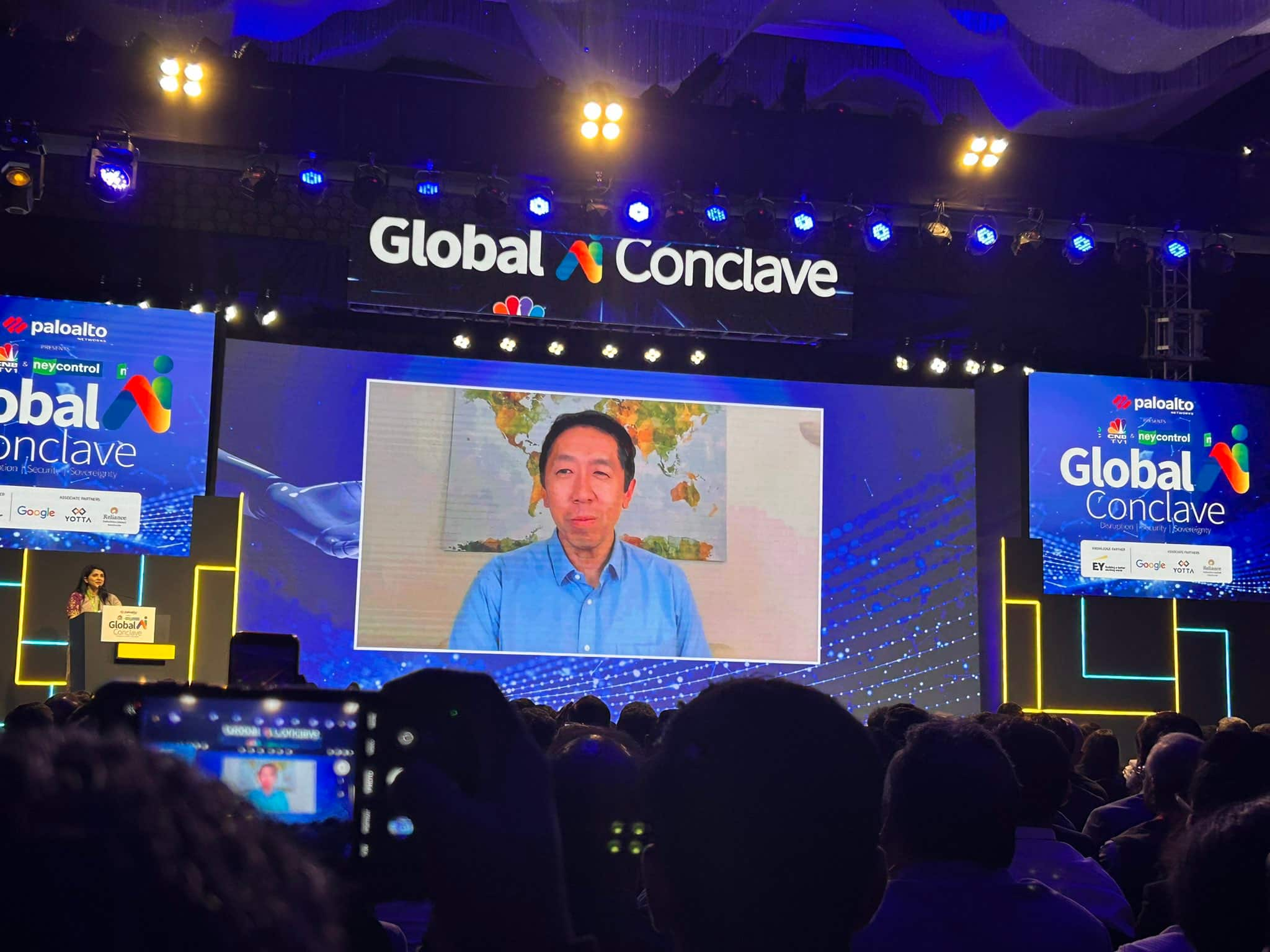Global AI Conclave: 'India has highest AI skill penetration...'; key takeaways from top industry stakeholders
Here's a look at what some of the key industry stakeholders said, while speaking at CNBC TV-18 and Moneycontrol's Global AI Conclave in Bengaluru
1/6

Andrew Ng (Co-founder of Google Brain and leading AI expert): "India has the highest AI skill penetration in the world, even more than the US," Ng said. On being asked about a realistic assessment on the impact of AI on employment, he said the number of jobs that could be taken away by AI is much less than it is being talked about.
2/6

Sridhar Vembu (Founder & CEO, Zoho): "If you look at software development, 20 percent work is creative and 80 percent is data book keeping. That 80 percent could be automated. That is the low hanging fruit," said Vembu, while commenting on digital vulnerability. He also pointed out that "smaller models" are good for specific demands. "With 7 billion parameters, we can do a lot," added Vembu, underlining the versatility of AI models tailored for particular areas.
3/6

Sharad Sharma (Co-founder, iSPIRT Foundation): While listing out the areas where AI could be useful, Sharma said the best payment anomaly detection model will be coming from India. This is because UPI is diverse, he added. Health is definitely an area to develop more models, especially with India's access to extensive health datasets, he pointed out.
4/6

Swapna Bapat (VP of Product Marketing at Palo Alto Networks): Commenting on evolving cyber threats and AI defence, she said It is easier now to create a sophisticated phishing attack. "Take models, train them; you don’t need a master's degree anymore. The scale of attacks is going to be massive." Bapat also said that AI has been used in image recognition, but there needs to be an ability to recognise text and prevent leaks.
5/6

Andrew Feldman (Founder, CEO, Cerebras Systems): Speaking on ambitious AI Supercomputers, he said, "We will build the 9 largest AI supercomputers in the world. By next year, we will build 36 exaflops of AI compute." On models and compute demand, he said, "While Sam Altman has said the models won't get bigger, he has the biggest models. The question is not do we need less compute. The question is infinite demand for compute."
6/6

Vivek Raghavan (Founder, Sarvam AI): "There's a new trend in India where investors are considering backing deep tech companies. When the concept of Gen AI emerged, I thought about making a difference in this space. We wanted to build something in continuation of what we had been doing—making Gen AI available and accessible to people widely. There will come a time when you will actually get better responses from AI bots than human responses. The fact that there is a tremendous shortage of GPUs will slowly ease. We may find out that there are many more important problems that people will try to resolve."
Discover the latest Business News, Budget 2025 News, Sensex, and Nifty updates. Obtain Personal Finance insights, tax queries, and expert opinions on Moneycontrol or download the Moneycontrol App to stay updated!






